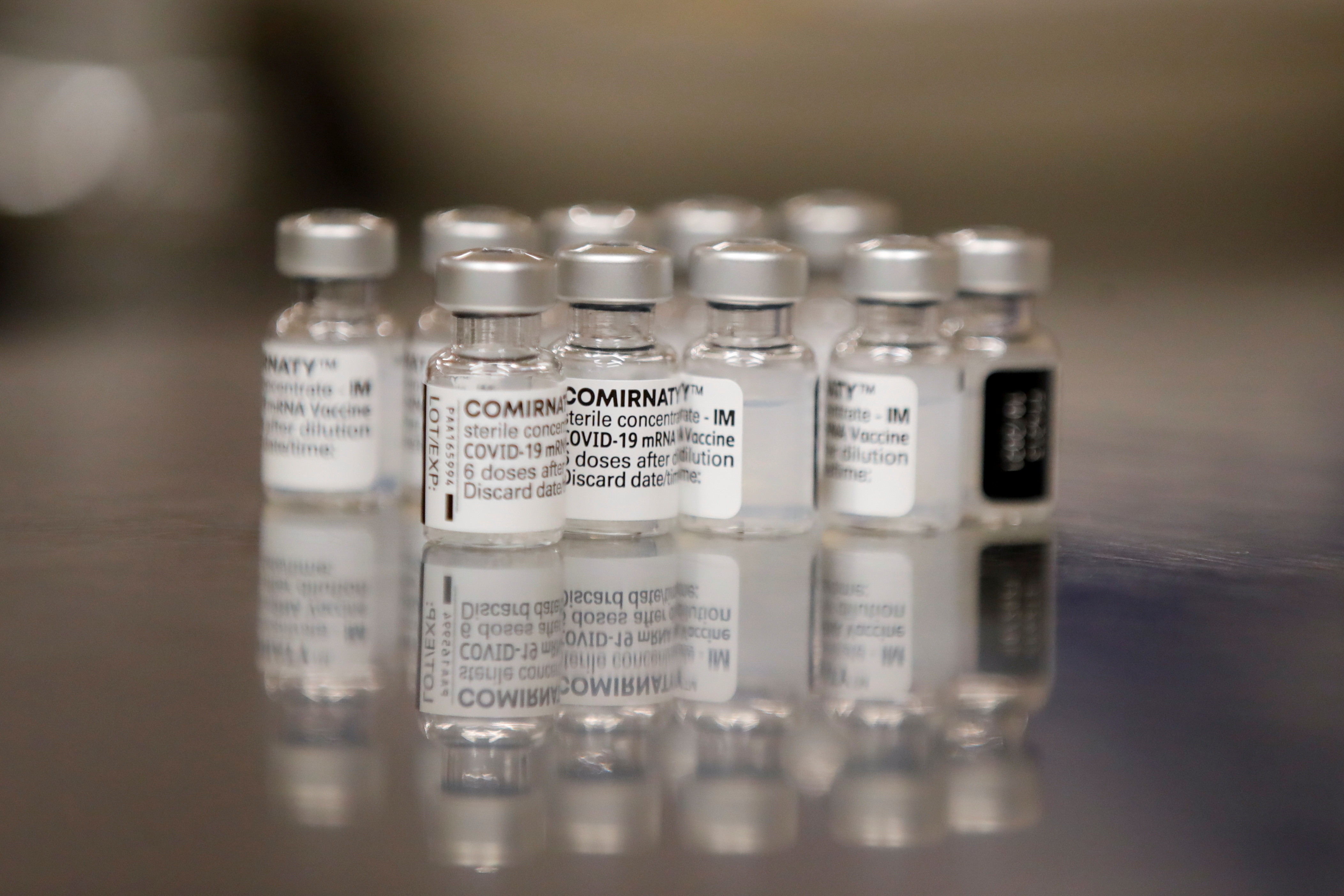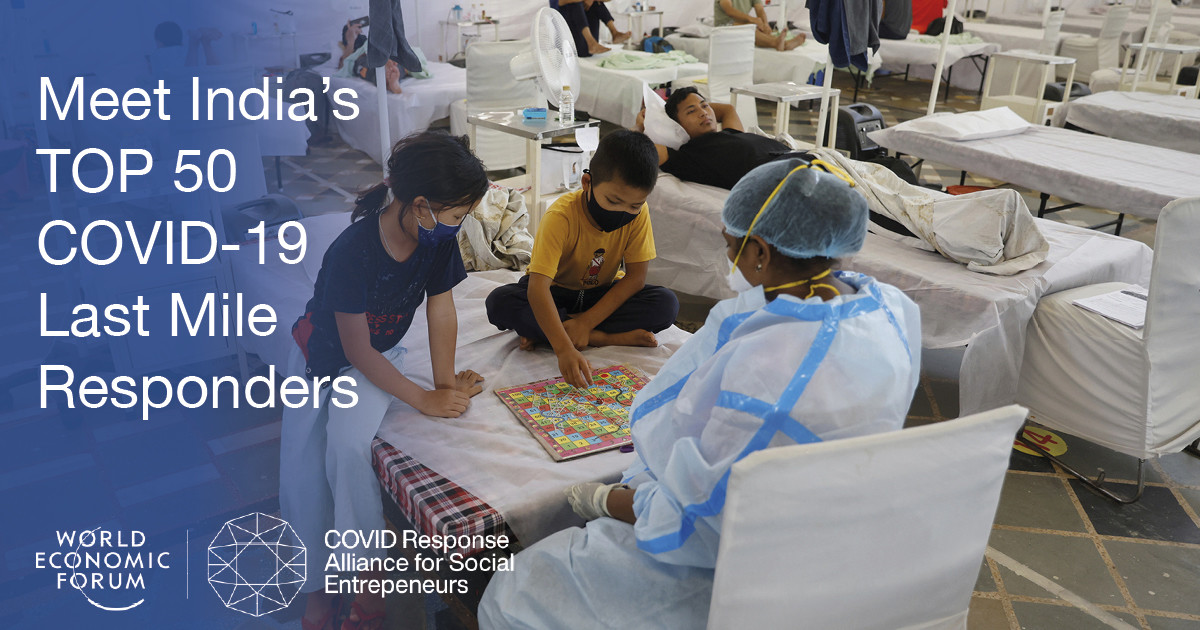Would you get a COVID-19 booster shot if offered?

Some countries have already begun to roll out booster programmes. Image: REUTERS/Sarah Meyssonnier
Listen to the article
- A new Ipsos survey finds that a majority of fully vaccinated adults in 13 countries would get a COVID-19 vaccine booster if offered.
- However, a majority also think priority should be given to people who've yet to have a full dose.
- A majority also think a booster is likely to be needed at least annually.
A new Ipsos survey in 13 countries around the world finds that a majority of fully vaccinated adults would get a COVID-19 vaccine booster shot if offered.
However, a majority of adults in every country also think priority should be given to people who haven't yet had a first dose.
The survey, a collaboration with the World Economic Forum, was conducted at the end of August and included 9,521 adults under the age of 75, of whom 5,977 had already received two doses of a COVID-19 vaccine.
Boosters likely to be needed, say most people
The survey shows a widespread belief that COVID-19 vaccine booster shots will be needed at least annually to maintain protection against the disease.
The expectation was highest in Mexico, Brazil and the United Kingdom, but lowest in Russia.

India’s leading COVID-19 last-mile responders
And most fully vaccinated adults would get one
The survey also showed that a majority of adults who have already had two doses of COVID-19 vaccine would get a booster shot if they were offered.
Intent to get a booster shot was highest in Brazil (96%), Mexico (93%) and China (90%) and lowest in Russia (62%) and Italy (66%).

But, priority should be given to those who haven't yet had a jab
Despite the high intent to get booster shots, a majority in all surveyed countries agree the priority should be to get first doses to those who need them before making booster shots available.
Support for prioritizing first doses is highest in China (83%) and lowest in France (56%). No more than one quarter disagreed in any country, and in some countries as few as one-in-10 did so.

What are COVID-19 vaccine booster shots?
“The simplest answer is that it’s just another dose of a vaccine you received,” Dr. Albert Shaw, an infectious disease specialist told Yale Medicine in August. “The concept is to prolong protective immunity, particularly if there is evidence that protection is waning after a period of time.”
Boosters are used to counter declining efficacy over time. For example, July data shows that the efficacy of Pfizer/BioNTech's COVID-19 vaccine dropped to 84% after six months from a peak of 96% with two months of vaccination.
The booster doses can also be tweaked to target specific variants of a virus. “The current vaccines are still effective against the variants we are now seeing, particularly for protecting against serious illness that would require hospitalization or cause death. But if the virus evolves further and there is a worse variant, the vaccine could be modified,” Dr. Shaw said.
Has anyone started using them?
Some countries have already started rolling out third doses, including Israel, France and Germany. Others, including the UK and US, plan to follow suit in September.
The World Health Organization had previously called for a pause on COVID-19 vaccine booster shots until the end of September. On Wednesday, Director-General Dr Adhanom Ghebreyesus called for this to be extended until at least the end of the year to narrow the gap in vaccinations between countries.
And, as Genya Dana, Acting Head, Health & Healthcare at the World Economic Forum explains, it's vital we work to close the gap between those with access to vaccines and those without:
"COVID-19 has highlighted how vaccination is by far the most effective public health intervention to protect populations from disease and it is crucial that robust vaccination infrastructure is deployed in every country on earth," said Dana.
"At least 60% of world's population needs to be vaccinated by 2022 to get the current pandemic under control – but the issue of equity and access must be front and centre of this effort. With only 0.4% of current doses administered in low-income countries, this crisis will keep multiplying. We need to redouble our efforts to get vaccines to everyone who hasn’t had one yet."
Don't miss any update on this topic
Create a free account and access your personalized content collection with our latest publications and analyses.
License and Republishing
World Economic Forum articles may be republished in accordance with the Creative Commons Attribution-NonCommercial-NoDerivatives 4.0 International Public License, and in accordance with our Terms of Use.
The views expressed in this article are those of the author alone and not the World Economic Forum.
Stay up to date:
Vaccination
Forum Stories newsletter
Bringing you weekly curated insights and analysis on the global issues that matter.
More on Health and Healthcare SystemsSee all
Mansoor Al Mansoori and Noura Al Ghaithi
November 14, 2025








